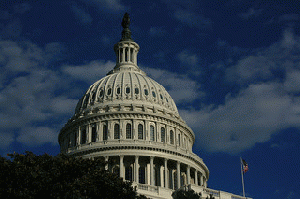Reprinted from Fortune
The U.S. House of Representatives recently adopted a new rule that requires lawmakers to take long-term macro-economic effects into consideration when deciding how to vote on tax and spending bills. In theory, this could show that tax cuts, particularly for billionaires, boosts the U.S. economy, since expectations of paying fewer taxes would encourage people to work a little harder, leading to more growth that would help offset revenues lost from tax cuts.
There is some truth to the logic behind this type of forecasting -- what policymakers call "dynamic scoring." But this approach put forth by the House has little to do with the way the economy actually works. True, lower tax rates do give workers somewhat more incentive to work and save, but serious analysis shows that the impacts of this incentive is small. This was the conclusion that the U.S. Congressional Budget Office reached in 2005 when it examined this issue under economist Douglas Holtz-Eakin.
In a model that examined the effects of a 10% reduction in all federal individual income tax rates, the economy was slightly larger in the first five years after the tax cut and slightly smaller in the five years that followed. In this case, using dynamic scoring showed the tax cut costing more revenue than in the methodology the CBO currently uses.
The CBO did find that dynamic scoring of the tax cut could have some positive effects if coupled with other policies. In one set of models, policymakers assumed that taxes were raised after 10 years. This led the government to raise more tax revenue in the first 10 years because people knew that they would be taxed more later, so they worked more. The House rule, however, does not factor in that taxes could rise in the future.
In the other set of models, the CBO assumed that government spending was cut by enough in 10 years to make up for the revenue shortfall. This also showed more growth because CBO models assume that cutting government spending will always lead to more growth. The way its models are structured, the less money is spent by the government, the more money will be available for private investment, which will lead to more productivity and growth.
This raises a far more serious problem. In the scenario just described, the CBO assumes government spending has zero impacts on productivity, meaning that if the government shut down all the schools tomorrow and stopped any spending to maintain or improve America's highways, airports and other infrastructure, the economy would still keep growing. The model assumes no productivity loss from having illiterate workers or dysfunctional roads and airports. It will only show gains, as some portion of the money saved is shifted into private investments.
To better reflect economic reality, the CBO should incorporate the productivity effects of public investment in its models. There has been much work done over the years on the productivity of different forms of public investment such as infrastructure, education, and research and development spending. If the CBO incorporated this productivity impact into its economic projections they would provide better predictions of the economic and budgetary impact of policy.
It would also be reasonable to include honest dynamic scoring of tax policy that includes future tax increases rather than the current House rule, which just includes tax cuts. But as the CBO analysis under Holtz-Eakin showed, this will lead to the opposite outcome desired by right-wing Republicans. It certainly does not make sense to require the CBO to use phony numbers to justify tax cuts for rich people, which appears to be the direction in which the Republican-controlled House is going right now.






